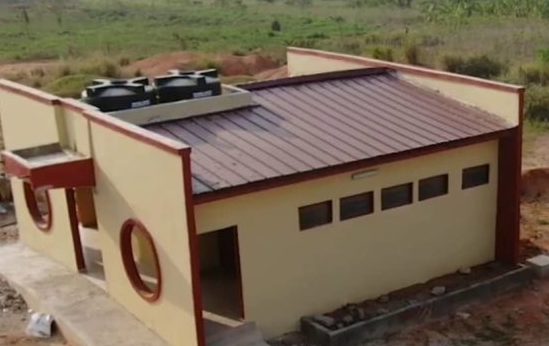Zabzugu District Assembly steps up efforts to improve social infrastructure to empower residents

The Zabzugu District Assembly is stepping up efforts to address the challenges of inadequate educational infrastructure to positively impact the academic performance of pupils in the district.
District Chief Executive of the area, Ahmed Bukari Iddrisu, said this when he addressed the Assembly’s meet-the-press session held at Zabzugu on Tuesday.
The media engagement was to give an account of the performance of the local government authority in the area since assuming power in 2017.
He said nine projects were completed in the education sector, including the construction of three-unit classroom blocks for Kalegu, Binyinkundo, Mognegu and. Gortanie Primary Schools and Zabzugu Senior High School, and supply of 300 dual desks and teachers’ tables and chairs to Charkplugu, Kolikolini, Tuvugu, Kukpalga, Benambado D/A Primary Schools.
The rest is a six-unit classroom block with staff common room for Kuntumbiliyi, a kindergarten block at Ochadindo, and the supply of 120 dual desks and teachers’ tables and chairs to the Zabzugu Girls Junior High School and the Bitido Primary School.
Mr Iddrisu also said strenuous efforts have been made to improve some roads in the area to ease farmers and traders’ access to market centres in the District.
He mentions a spot improvement of the Zabzugu-Tikpralanyili Feeder Road (seven km) and the construction of Woribogu-Suburini Feeder Road (10km) were some of the interventions in the road sector.
In the health sector, the DCE said Community-based Health Planning and Services (CHPS) Compounds were constructed at Mognegu, Kpaligigbini, Nakpali, and Kukuokpanga, including the construction of a reproductive and child health clinic at Zabzugu and the construction of a children’s ward and supply of hospital equipment to the ward at the Zabzugu Hospital and rehabilitation of Woribogu Clinic were undertaken as critical interventions to help improve on health care delivery in the area.
The Assembly, he said, is keen on addressing water and sanitation challenges in the area and has completed several boreholes and institutional latrines in 30 communities including Ojoja, Ochadindo, Zagyuri, Wagado, Sabare, Nakpali, Zabzugu and Zabzugu New Market to ensure improved sanitation practices.





